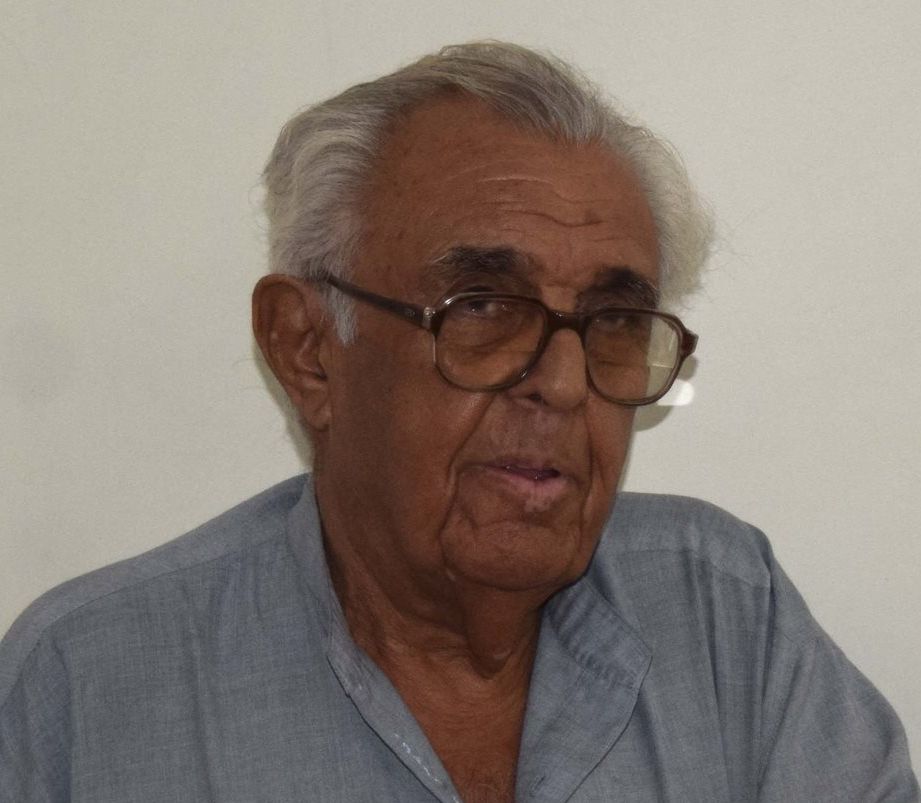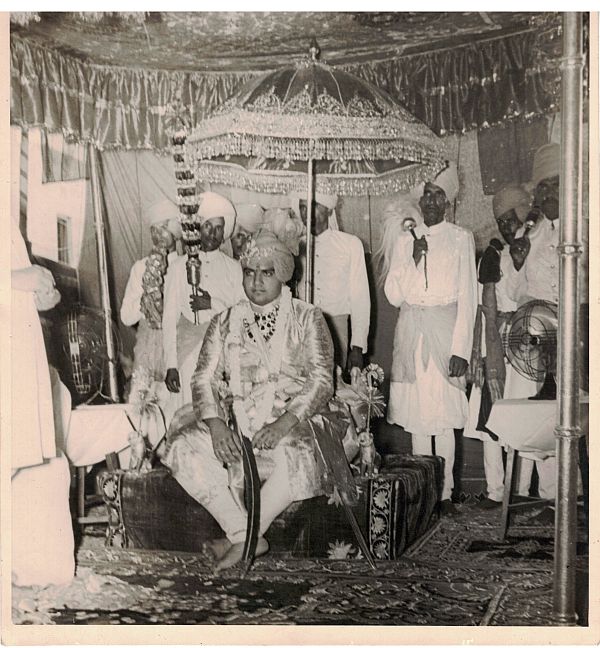Coronation of an Indian Maharaja
Category:
Tags:

President of the Indian Peoples Theatre Association and a Fellow of the Royal Asiatic Society of Great Britain and Ireland, Ranbir Sinh has lived a multifaceted life as an actor, director, playwright, historian, author, and public intellectual. He resides in Jaipur and is still going strong with his research, writing, and theatre.
Each Princely dynasty in erstwhile Rajputana has its tradition for the coronation of a Prince. The common part is that it takes place twelve days after the death of the ruler, and his eldest son succeeds to the throne. Who should apply the tilak is decided based on political compulsions and historical events. In Bikaner, it is a Godara Jat who applies the tilak. In Jaipur, it is a Susawat Meena who does it, and in Jodhpur, it is the Thakur of Bagdi.
As a young man, I was fortunate to witness the coronation of Hanuwant Singh of Jodhpur in 1947. At that time, Jodhpur was still an independent kingdom, functioning under a treaty with the British. I am sharing my memory of the occasion, with all its twists and drama, below.

Coronation of Maharaja Hanuwant Singh of Jodhpur. June 1947. Jodhpur.
21st June 1947, Mehrangarh
On the 9th June 1947, Maharaj Ummed Singhji of Jodhpur died, and on the 21st June 1947 his eldest son, Hanuwant Singh succeeded him. The coronation took place at Mehrangarh, a centuries-old fort. There was a large and solemn gathering of the royal family of members, rulers and representatives of other states, and the nobles and people of Jodhpur. Most wore a white achakan and a white safa. All patiently waited for the appointed auspicious time. But soon we noticed that something had gone wrong. Several senior nobles were huddled together in serious discussion. Each was enquiring as to what has happened? I walked up to my father, Harnath Singh of Dundlod, who had come as the representative of Maharaja of Jaipur, and asked him the same question, "What was happening?"
The Tilak
During the late 1940s, Madhvanand, a Tantrik sadhu, had managed to influence the royal family of Jodhpur. He had assumed great powers, almost like that of Rasputin in the court of the Russian Czar. My father mentioned that orders have come that Madhvanand will apply the tilak. Madhvanand's role was against tradition, as the Thakur of Bagdi was supposed to apply the tilak. Thakur Bagdi had, in turn, refused to do the tilak and even threatened to walk out. It was a serious matter. But good sense prevailed. The acceptable solution was that Thakur of Bagdi would apply tilak according to the tradition, and Madhvanand will do the tilak in private.
A sigh of relief came to all. But now it was announced that the State of Baroda would be the first one to do sirepav.
Sirepav
The custom of sirepav originated at the Mughal Court, and under its influence, its presentation was followed by almost all Indian Princes with the utmost diligence, respect, and status. Sirepav means from head (sir, in Hindi) to feet (pav, in Hindi). It consists of Pagree, cloth for Angarkha, fabric for kurta, fabric for pyjama, and scarf.
My father, Harnath Singh, refused to place the sirepav from Jaipur below that of Baroda. His decision led to more chaos as the status of each ruler was very strictly followed and very important. As no solution seemed in sight, Harnath Singh moved away, taking his seat and started smoking. This event marked the first time I saw my father smoking.
He was very grave and grim. Suddenly, he threw the cigarette away, got up, and asked his followers to bring the sirepav. In the room, there was a very large round table. He placed the sirepav at a place on the table, asked Maharaj Bhairon Singh of Bikaner to put his sirepav and announced to the others to follow. As everyone could claim to be number one, the round table played an essential and vital role in ending the egoistic situation.
So, on the 21st June 1947, the coronation of Hanuwant Singh took place smoothly, and he became the Maharaja of Jodhpur.
____________________________________________________
© Ranbir Sinh. Published October 2019.
Editor's note: We approve all comments written by people\; the comments must be related to the story. The purpose of the approval process is to prevent unwanted comments, inserted by software robots, which have nothing to do with the story.
Comments
Add new comment